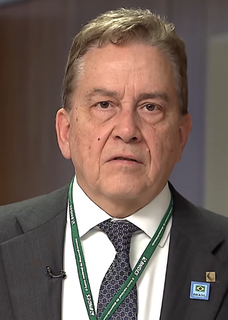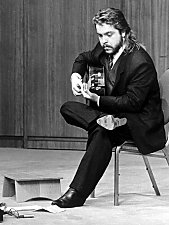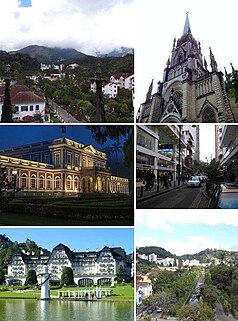
Alfredo da Rocha Viana, Jr., better known as Pixinguinha was a composer, arranger, flautist and saxophonist born in Rio de Janeiro. Pixinguinha is considered one of the greatest Brazilian composers of popular music, particularly within the genre of music known as choro. By integrating the music of the older choro composers of the 19th century with contemporary jazz-like harmonies, Afro-Brazilian rhythms, and sophisticated arrangements, he introduced choro to a new audience and helped to popularize it as a uniquely Brazilian genre. He was also one of the first Brazilian musicians and composers to take advantage of the new professional opportunities offered to musicians by the new technologies of radio broadcasting and studio recording. Pixinguinha composed dozens of choros, including some of the most well-known works in the genre such as "Carinhoso", "Glória", "Lamento" and "Um a Zero".

Ney Franco da Silveira Júnior, known as Ney Franco, is a Brazilian football manager, currently in charge of Chapecoense.

Yamandu Costa, sometimes misspelled Yamandú, is a Brazilian guitarist and composer. His main instrument is the Brazilian seven-stringed classical guitar.

Rafael Martiniano de Miranda Moura, or simply Rafael Moura, is a Brazilian footballer who plays for América Mineiro.
Dilermando Reis was a Brazilian musician, composer, guitarist and music teacher.

Armandinho is a Brazilian composer and singer. He was born in Salvador, the son of Osmar Macêdo, from the world's first trio elétrico, the Trio Elétrico de Dodô e Osmar. In his early career, he played in his bands Trio Elétrico Mirim in 1962 and Hell's Angels in 1967.
Arthur Maia was a Brazilian composer and musician. Considered one of the best bass players in the world by professional critics, Maia played with many famous artists, such as Djavan, Gilberto Gil, Marisa Monte, Lulu Santos and Ney Matogrosso. His compositions usually present a fusion of jazz, funk, swing music and reggae.

Relendo Dilermando Reis is a 1994 album recorded by the Brazilian musician Raphael Rabello. Produced by J. C. Botezelli, also known as Pelão, the album won Prêmio Sharp for Best Soloist in the same year. The disc presents many choro and waltz songs interpreted by Dilermando Reis in the past.

Mário Negrão Borgonovi is a Brazilian composer, drummer and percussionist.

Hamilton de Holanda is a Brazilian bandolinist known for his mixture of choro and contemporary jazz, and for his instrumental virtuosity. Born in Rio de Janeiro he moved to Brasilia with his family as a boy. He started playing the mandolin at 5 and appeared at his first performance at six. With his brother Fernando César he formed the group Dois de Ouro and throughout his career he has collaborated with many other significant artists such as Yamandu Costa, Mike Marshall and Joel Nascimento. He has received several Latin Grammys. He has taught at the Raphael Rabello Choro academy. He plays a custom made 10 string Bandolim.

Far from Alaska is a Brazilian rock band formed in 2012 in Natal, Rio Grande do Norte, and based in São Paulo, São Paulo.

Rogerio Caetano is a Brazilian musician, arranger, musical producer and composer. Bachelor of Music in Composition by the University of Brasília, he is an awarded virtuoso and international reference in 7 string guitar. Using a revolutionary language, within the choro and samba music genres and mixing jazz elements, he represents a new school for this instrument.

Paulo Rabello de Castro is a Brazilian economist, incumbent president of the Brazilian Development Bank (BNDES). He was also the president of Brazilian Institute of Geography and Statistics (IBGE). For both offices, Rabello was appointed by president Michel Temer.
















